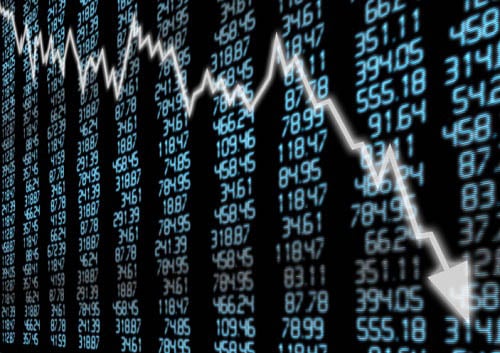The ability of stock markets to ‘climb a wall of worry’ suggests investor confidence, though there are caveats

The International Monetary Fund (IMF) recently took a bearish turn with its latest outlook for the global economy, predicting that it would grow by the slowest pace since the 2008-2009 financial crisis. Nevertheless, economic headwinds appear to be of limited concern to the financial markets — at least for the moment.
In its recently released Q4 Canada Outlook, HSBC Asset Management Canada took note of the stock markets’ ability to advance even in the face of negative news and trends.
“The ability of today’s markets to climb a wall of worry suggests investors are confident that negative headwinds will be overcome at some point,” the report said. The S&P/TSX Composite index advanced by 2.5% in the third quarter, resulting in 19% year-to-date positive performance. The FTSE TMX Canada Universe Bond Index, meanwhile, posted a 1.2% gain for the third quarter and was up 7.8% year-to-date.
Tempered optimism on economic growth
While HSBC analysts agreed with investors’ optimistic view, they noted some important caveats. Aside from the likelihood that a long-simmering US-China trade conflict will weigh on growth for the foreseeable future, they noted added risks from uncertainty surrounding the efforts to impeach U.S. President Donald Trump and an increasingly probable hard no-deal Brexit.
Referring to HSBC Nowcast, a proprietary measure of global economic activity, they acknowledge that there has been a steady decline from 4.6% annualized growth in January 2018 to 2.2% in July 2019. Still, the current global growth rate also roughly matches that observed in 2016, the last time recession fears flared up but did not materialize.
“[O]n balance, we are confident that a global recession is unlikely to take hold until 2021 or later,” they said.
Equities more attractive than bonds
Given the current weakness in the business cycle, many investors have adopted safety as their watchword, prompting moves into fixed income. However, HSBC analysts noted that “safe” investments — particularly government bonds — have seen recent drops in yield based on expectations that central banks will continue to relax monetary policy in order to prop up the economy.
“Fixed income has become slightly more expensive,” they said, arguing that corporate bonds are more favourable due to their higher return potential compared to government issues. Similarly, provincial bonds are more attractive than Government of Canada bonds as the former offer higher potential for returns.
From a valuation standpoint, they argued, equities are currently more desirable than bonds. In particular, they highlighted the continued attractiveness of value stocks relative to growth stocks, as well as moderate but still positive expectations for corporate profits in Canada.
“We have maintained our portfolios to be slightly overweight equities,” they said, noting that the asset class continues to be attractive compared to government bonds.



